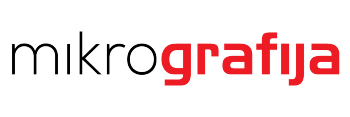Sooner or later it becomes clear that printing daily mail and other business documents is not a solution, but it creates another problem – where to store all these folders, how to track them, how to edit related documents. Not only are the metadata lost as an integral part of the documentation, that was originally created in e-form, and is thus original truncated, but a simpler and faster way of doing business suddenly becomes the problem of the company, which is reflected in the lack of physical space for all of the above printed material.
For budgetary users (with minor exceptions) it is stated that in order to manage documentary material (business documentation) and thus comply with the regulations on the protection of personal data and the protection of materials (in electronic storage), it is necessary to adopt internal rules approved by the Archives of the Republic of Slovenia. The adoption of internal rules is particularly important for ensuring the legal validity of electronically stored documents. The Slovenian legislation (ZVDAGA) binds the legal validity of these documents to confirmed internal rules. The Decree on the Protection of Documentary and Archival Material (UVDAG) even more precisely regulates the operation and persons who carry out the storage of documentary and archival material.
Internal rules are a legal document, that sum up organizational, technical and legal measures adopted by the organization in order to regulate the operation of the documentation in digital form and in this way legally and formally guarantee originality and traceability to the business without paper trail.
If such internal rules are necessary and prescribed for the public administration, how is it with other (economic) companies? ZVDAGA in its original first form, even envisioned the equalization of the public administration and economy, and only after that, in the correction, the internal rules were prescribed only for budgetary users as a mandatory document. Today the economy is not obligated to introduce internal rules, but on the other hand, if they want to operate without paper they need to have them. The difference is therefore only one – private entities voluntarily send internal rules for confirmation to the Archive of the Republic of Slovenia on the basis of the provisions of Article 19 of the ZVDAGA. The certification service is payable.
If the company estimates, that they don’t need approved internal rules, they can still prepare them at the company level (management or director) and assign the status of internal act to the document. Such document is also binding and has a legal basis. It defines internal organization, a way of processing and storage of materials and related infrastructure.
To simplify we can say that we are talking about the ”rules on office operations” with e-documentation. Those need to be effective, clear, follow the philosophy of safe operations and business documentation (exceptionally in the economy also archival documents). If the company already has existing policies or already acquired business certificates (e.g. ISO standards), they can use internal rules to supplement it. Clarity, unambiguity, simplicity, traceability is crucial, and at the last, but extremely important, security – secure e-storage of documentation with a clear risk assessment and retention periods.
The efficiency of services and business depends in most cases on an appropriate approach in implementing all building blocks for the successful implementation of the internal rules. Market offer so-called sample internal rules that may be appropriate for companies that do business in a similar way or carry out the capture and conversion of documents in the same way in paper or electronic form. In such a case, the company can buy sample rules and implement them in their business. In the case of business specificity, however, the company has the possibility to write and compile it on their own or it can hire external consultant who can advise on the execution, implementation and control of internal rules.
Conclusion?
The confirmed internal rules (especially those approved by the Archives of the Republic of Slovenia) give our business partners an additional confirmation that we are doing and acting in accordance with the law. In this way, the documentation automatically acquires the legally recognized validity of the documentation, which is stored in electronic form. In this way (in particular) the proofing of the identity of the converted and captured documentation is much easier, if not automated.
Another aspect, much more business orienting is setting unambiguous standards in dealing with such documentation, where every employee receives clear instructions and guidance and recognizes his role in the responsible corporate chain, which in the long run does not mean anything other than a quality and transparent business, what everyone should strive for.


